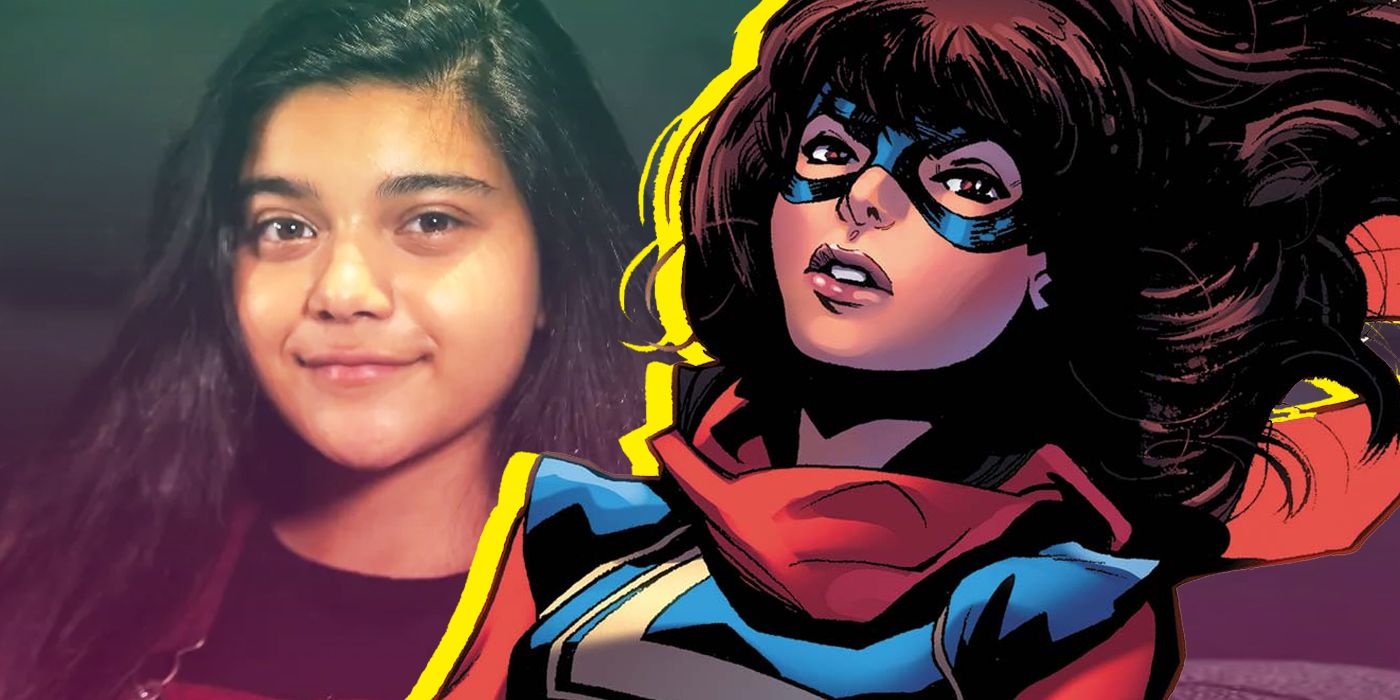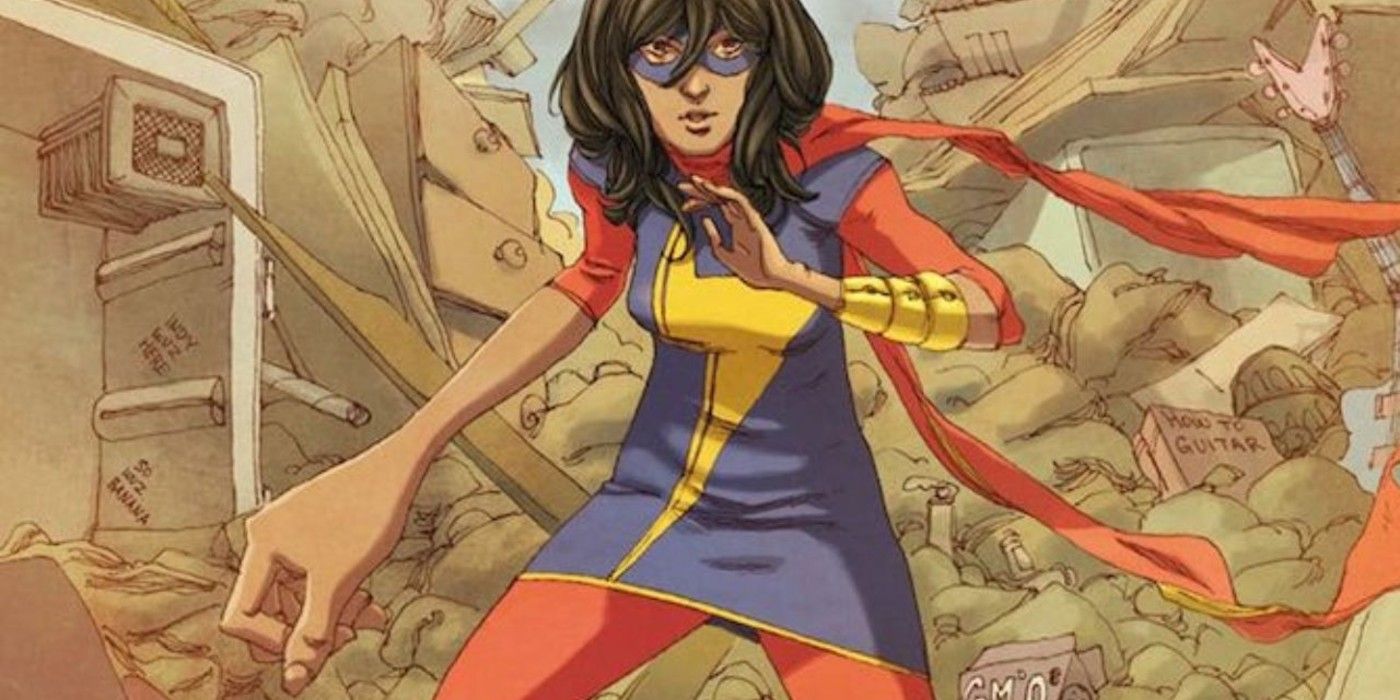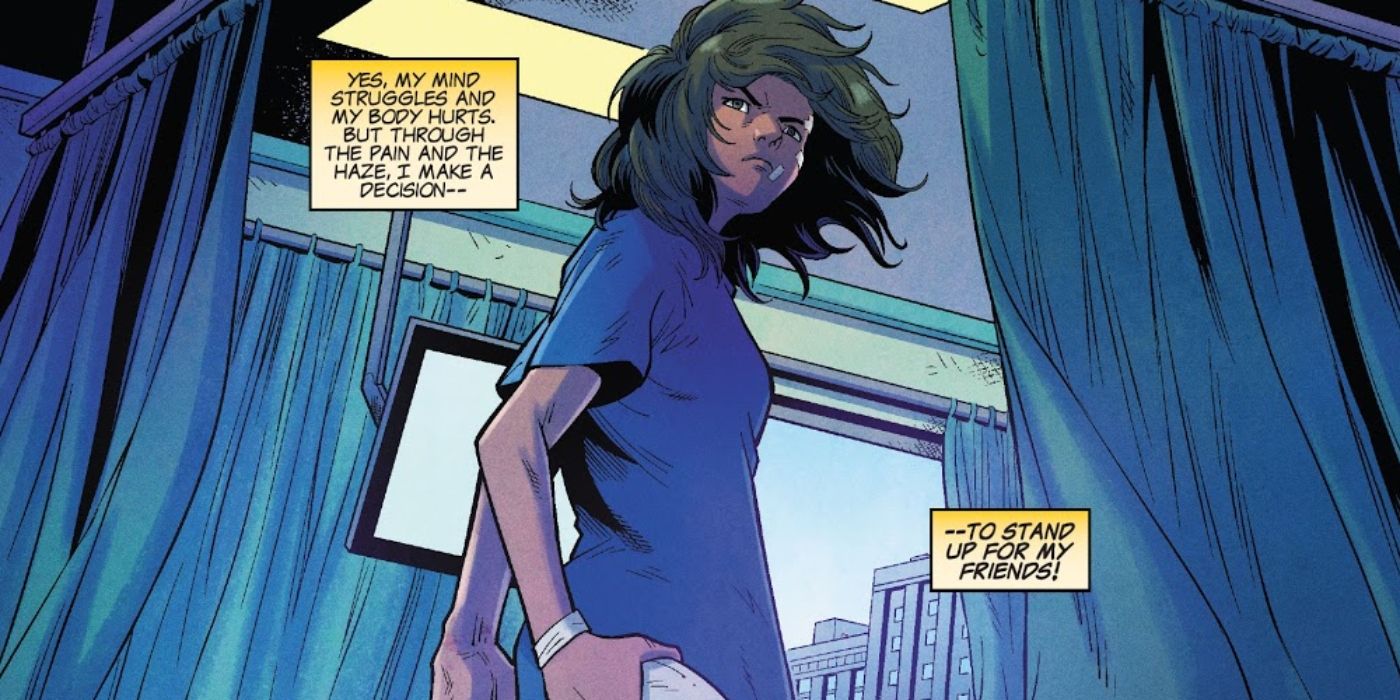When Marvel Studios announced plans to bring Ms. Marvel, aka Kamala Khan, into the Marvel Cinematic Universe with her own Disney+ series, people immediately started wondering how the series would be cast. All of the actresses who have provided the voice for Ms. Marvel in various projects (Kathreen Khavari, Priyanka Chopra, Ashly Burch, Sandra Saad and Rebecca Kiser) are in their thirties and, therefore, too old to play a live-action teenager.
Muslim, Indian, or Pakistanian actors have been largely sidelined in Hollywood, but Marvel would need to bring an actress of such descent to the forefront of their series, and it did just that. In September, the studio cast Canadian actor Iman Vellani, born to Muslim immigrants from Pakistan, as Kamala Khan. She'll be making MCU history as the first Muslim superhero character -- a huge step forward in terms of diversifying the film and television industry.
In addition to this, Marvel has announced some of the series' directors: Adil El Arbi and Bilall Fallah (who most recently directed Bad Boys for Life), Sharmeen Obaid-Chinoy (known for Oscar-winning short films Saving Face and A Girl in The River: The Price of Forgiveness) and Meera Menon (who has recently directed episodes of television shows like GLOW, Titans, The Walking Dead, and The Punisher), all of whom come from Muslim and/or South Asian backgrounds. Hiring Muslim and South Asian directors to helm a Muslim and South Asian story isn't a guarantee of success, of course, but it's a very positive step.
Prior to these announcements, the Hollywood Reporter speculated about the effect a Ms. Marvel show could have on the culture at large. As Marvel's first Muslim character to headline her own series, Ms. Marvel has already had a significant impact in comics and the greater realm of superhero fiction, but a popular TV show and eventual film appearances would bring her to a whole new audience. Films like Marvel's own Black Panther and the romantic comedy Crazy Rich Asians have created strides in recent years for actually telling stories about non-white characters with largely non-white casts and creative teams. Black Panther had a Black director, Black screenwriters, a primarily Black cast and a creative team that included multiple Black artists. Crazy Rich Asians was adapted from a book by Chinese Singaporean author Kevin Kwan, had a Taiwanese and Chinese-American director, a Malaysian and Chinese screenwriter, a primarily Chinese and pan-Asian cast and a creative team that included multiple Asian artists. Black Panther brought African culture to the screen, specifically Afro-Futurism, which is largely underrepresented and misunderstood in Western media. Crazy Rich Asians brought Chinese Singaporean culture, which is also largely underrepresented and misunderstood in Western media. Both films received award nominations and wins, some of Black Panther's being historical firsts for superhero films and Black creatives.
Hollywood often falls short when it comes to the portrayal of Black and Asian characters, but Muslim characters are almost nonexistent. Films that do include Muslim characters create them to be side characters, or overly traditional caricatures, or the most harmful stereotype -- terrorists. The fact is that Muslim people are so much more than the boxes that society has put them in, and it's high time the media start portraying them in a better light.
The Ms. Marvel television series has the potential to do this. Kamala is a teenage superhero living in New Jersey and struggling with growing up while learning how to be a hero, and she just happens to be Pakistani-American and Muslim. Her background informs her choices and who she is (her costume, for example, is inspired by traditional South Asian shalwar kameez), but it's not her only defining characteristic. She's a nerd, a straight-A student and a genuinely brave, plucky kid. Her parents, brother, friends and religious leader all play a part in her story too, and they all have different relationships to faith and the world that help inform Kamala's story.
Seeing a Muslim heroine in her own story struggling with issues of faith, life and superheroing in equal measure, surrounded by a mostly-Muslim supporting cast will be nothing short of remarkable. Marvel and Disney+ seem to be making a concerted effort to do right by the characters and the communities they belong to by hiring Muslim and South Asian creatives to tell this story, and if it's done right, it could usher in a new era of positive Muslim representation in the media.



